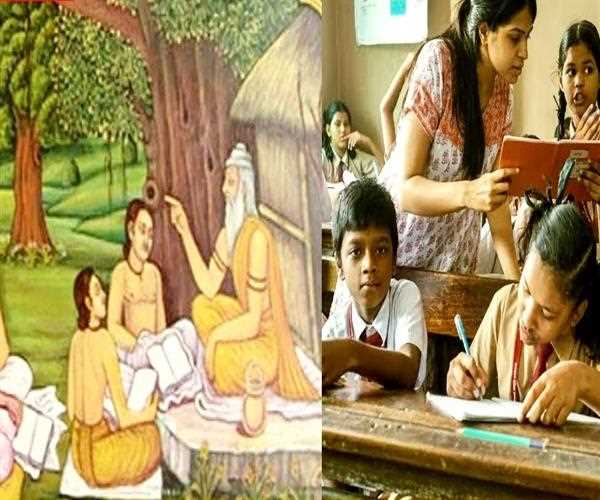
22-Jul-2024 , Updated on 7/22/2024 10:56:04 PM
Why India Lost the Gurukul Way of Teaching: A Reflection
When we think of the Gurukul way of teaching in 2024 we can’t think much beyond the stuff we read in Ramayana and Mahabharata and I am hoping that most of us have at least read that. But what of the years after that? We didn't go from that era straight to the 20th century. So what happened?
Contrary to popular belief the Gurukul system was more than just a teaching method; it was an integral part of ancient Indian culture and spirituality. In these institutions, education was deeply intertwined with the values and customs of the time. The system was designed to impart academic knowledge and moral and ethical values, preparing students to lead virtuous lives. This approach was personalized, with students living close quarters with their teachers, learning through direct experience and observation. The curriculum included a wide range of subjects, from the Vedas to arts and sciences, emphasizing a balanced and holistic education.
However, the decline of the Gurukul system was gradual and influenced by a series of historical and social changes. The arrival of foreign invaders, such as the Mughals, brought with them new administrative systems and educational methods. These changes began to erode the traditional Gurukul model. The Mughal administration established madrasas and other institutions that, while incorporating some aspects of Indian learning, introduced new structures and curricula that differed from the Gurukul tradition. The invaders sought to ruin the traditions from the core to truly influence the common folk and have them carefully puppeteered via the madrasas.
The British colonial period marked a significant turning point. The British introduced their educational system, which was primarily focused on creating a workforce to support colonial administration. To this day we are nothing but slaves to the colonial system of education and it fails students like me at every significant turn of our lives. This system was fundamentally different from the Gurukul model, emphasizing rote learning and Western subjects. The British education system was designed to serve colonial interests rather than the holistic development of individuals. As a result, traditional Gurukul institutions were sidelined, and even actively destroyed. Many scholars of that day even threw the scripts in water to preserve their sanctity.
With the advent of the 20th century, India’s education system continued to evolve under the influence of various modern reforms but the primary root remained the British system. The emphasis shifted towards formal schooling with standardized curricula, examinations, and a focus on science and technology. While these changes were necessary for modernizing the country and meeting the demands of a rapidly industrializing world, they also led to the gradual disappearance of the Gurukul system. As we navigate through 2024, the Gurukul system seems like a distant memory.
Despite its decline, the essence of the Gurukul system still holds valuable lessons for contemporary education. The personalized approach to teaching, the emphasis on holistic development, and the integration of ethical values are aspects that modern education systems can learn from. Today, there is a growing recognition of the need to incorporate these elements into current educational practices, aiming to create a more balanced and inclusive learning environment. Many people are reverting to the roots of the true meaning of Sanatan and with that finally embracing our culture with open arms.
In conclusion, the Gurukul system’s decline was not a sudden event but rather a gradual process influenced by historical, social, and political changes. The transition from ancient to modern educational systems reflects broader shifts in society and governance. While the Gurukul way of teaching may no longer be prevalent, its legacy continues to inspire efforts towards a more holistic and values-based education in the 21st century.

Student
I’m a 21-year-old engineering student who loves writing as a form of self-expression and reads a lot. I like to watch sitcoms, I am a fan of all music but my favorite artist is Julia Michaels and I love to paint.
Join Our Newsletter
Subscribe to our newsletter to receive emails about new views posts, releases and updates.
Copyright 2010 - 2026 MindStick Software Pvt. Ltd. All Rights Reserved Privacy Policy | Terms & Conditions | Cookie Policy